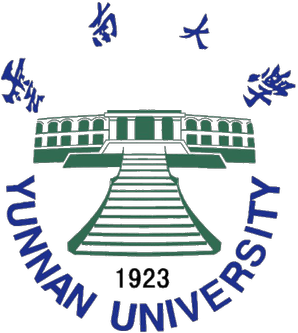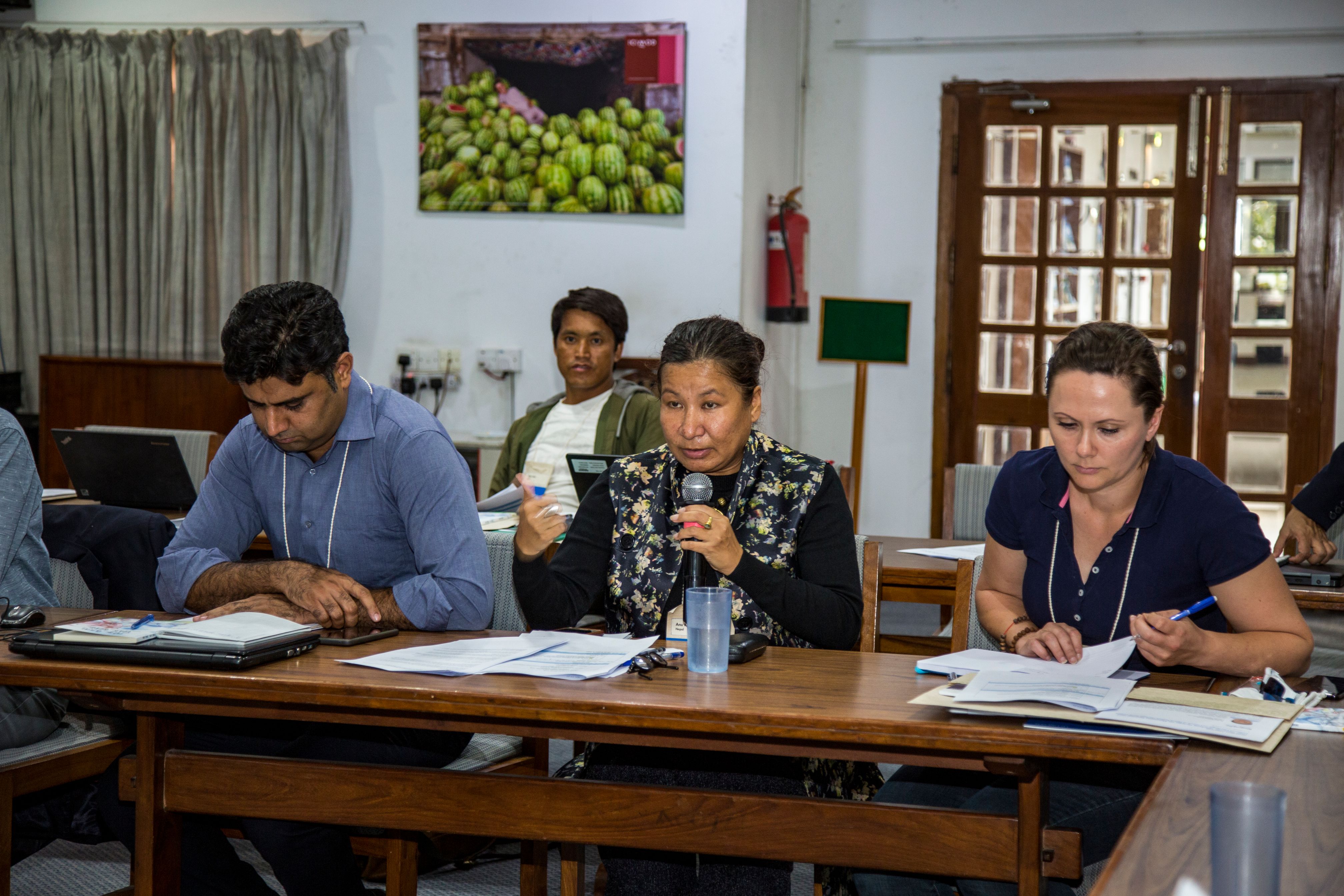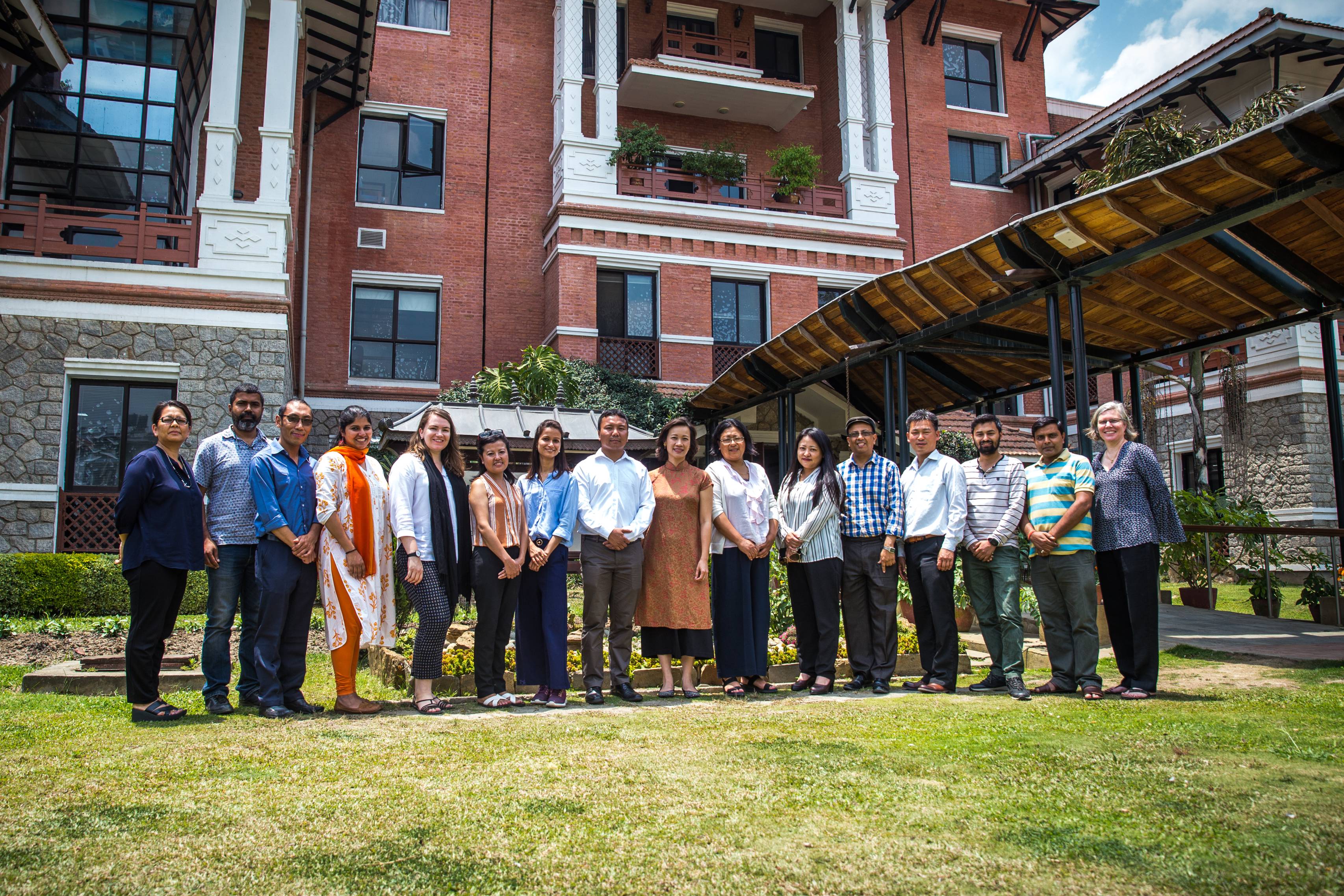
Background
Science–policy initiatives undertaken by the International Centre for Integrated Mountain Development (ICIMOD) and Yunnan University have reaffirmed the critical importance of the world’s mountains in supporting the earth’s biodiversity and the need to protect the geo-ecological uniqueness of the Hindu Kush Himalaya (HKH). In addition to fostering science–policy dialogue and alliances, ICIMOD, through its Himalayan University Consortium (HUC), has recently initiated a number of research projects driven by the social sciences and humanities on sustainability studies in the HKH.
The HUC Trans-Himalayan Environmental Humanities Thematic Working Group is one of these high-impact initiatives, working to widen the scope of Himalayan environmental studies with more inter-disciplinary approaches and policy engagement. “Interfacing Indigenous Knowledge, Modern Science, and Policymaking: Water and Climate Change in the Hindu Kush Himalaya,” the Working Group’s first project funded by the HUC, is a landmark research endeavour that has formally ushered environmental humanities into Himalayan studies. The project involves scholars from Bhutan, China, India, and the Netherlands.
Environmental humanities, an emerging interdisciplinary field of environmental studies, calls for diverse responses to locally manifested global environmental challenges and a fundamental understanding of what it means to be a human resident of earth (Rose et al 2012). By emphasising the relational nature of the earth with the world humans inhabit, environmental humanities draws attention to the values and applicability of indigenous ecological knowledge in building a sustainable future for the earth community. Its conceptual resonance with Himalayan scholars as well as policymakers across the world is becoming ever more evident
Objective
The Trans-Himalayan Environmental Humanities workshop in Kunming, China will showcase the latest thematic studies on water, climate change, and sustainable living in the greater Himalayan region in the context of the Anthropocene – the geological age of humans – in which most environmental changes are human-induced. Participants and facilitators will discuss how indigenous experiences of climate change relate to observations made by environmental scholars and how humans value the environments in which they live, including how these appreciations change over time and what kinds of factors influence such changes. This will be done at an interface where indigenous knowledge, modern science, and the global sustainability discourse come together. With environmental humanist approaches in mind, contributors to the workshop must address these interconnected themes in their respective case studies. Papers presented at the workshop will be compiled and published.
Application process and selection
The organizers are inviting scholars and researchers from HUC full member institutions in the HKH and associate member institutions outside the region to submit research abstracts on the topics indicated in the preceding paragraph, applicable in the HKH region. The authors of the selected abstracts will be expected to present a fully developed paper at the conference in November 2019. Submissions will be assessed based on their quality and thematic relevance. The conference particularly welcomes papers addressing the environmental sustainability of the HKH as a more-than-human world.
Selected authors from HUC full member institutions will receive partial funding from the organizers to attend the conference. This provision is not available to authors affiliated with HUC associate member institutions. Selected papers will undergo revisions and be published with a Social Science Citation Index (SSCI) or The Arts & Humanities Citation Index (A&HCI) journal, or a globally reputable academic publisher.
Interested scholars may submit their CV and abstract to huc@icimod.org. Please make sure to include the term 'Abstract–Trans-Himalaya 2019' in your email subject line.
The submission deadline is 15 July 2019.






